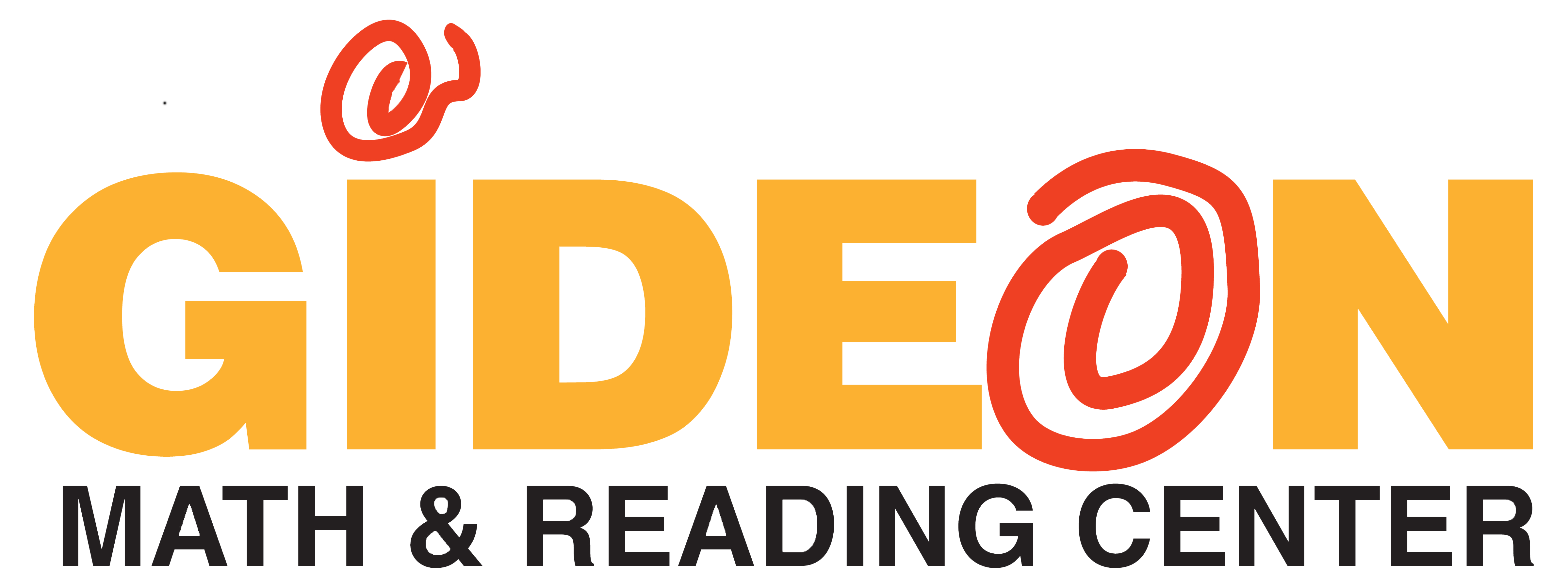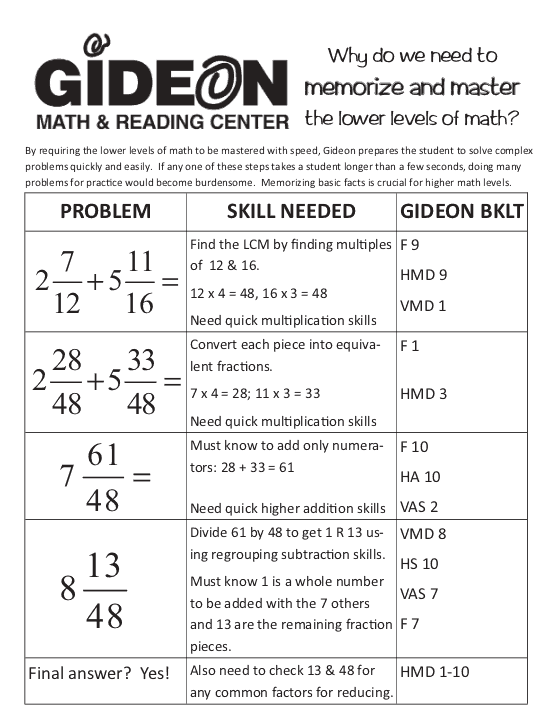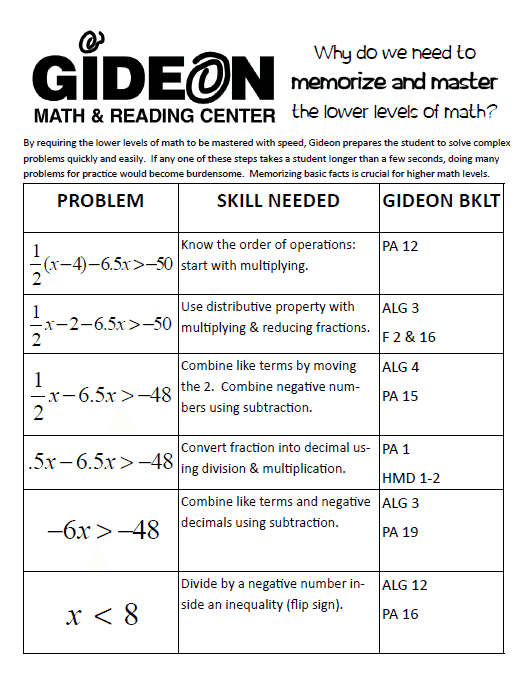From joannejacobs.com & usatoday.com
“Our kids hate math” because they’re pushed to learn higher math before they’ve mastered the basics, writes Patrick Welsh, who teaches at T.C. Williams High in Virginia, in USA Today.
The experience of T.C. Williams teacher Gary Thomas, a West Point graduate who retired from the Army Corps of Engineers as a colonel, is emblematic of the problem. This year, Thomas had many students placed in his Algebra II class who slid by with D’s in Algebra I, failed the state’s Algebra I exam and were clueless when it came to the most basic pre-requisites for his course. “They get overwhelmed. Eventually they give up,” Thomas says.
While teaching Algebra I for 9th graders ten years ago in Austin, TX, I found many students did not know basic multiplication facts and wanted to use a calculator for everything (which I denied). Negative numbers and fractions were topics where even more students had no mastery and made a lot of mistakes. Students who had failed middle school math were still placed into my class. It’s very difficult to learn algebra without this background knowledge. It’s like trying to read a sentence without being able to sound out some of the words! You get stuck and can’t move on.
The article continues, “It is time to ensure that all kids absorb the fundamentals of math — computation, fractions, percentages and decimals — first before moving on to the next level,” Welsh concludes.
At Gideon, we have seen that almost any child can excel at math — given the time to master it. The time will vary from student to student. Some students only need a couple of days to master adding fives, while others will struggle for several weeks. BUT! If we persevere with the practice, the student will get it! (And when you ‘get’ something, you don’t tend to ‘hate’ it. I know MANY kids that enjoy math very much.)
If you move on too soon (before memorization), the student will continue to need crutches (such as: finger counting or dot patterns) to calculate addition facts. The larger issue of not getting a solid foundation with the basics is that the struggle with math snowballs each year into something bigger. Think of each skill that is not mastered creating a new layer of snow creating more speed and weight to pull the student down.
This leads to trouble with long division (skills needed: subtraction, multiplication, and division) and fractions (skills needed: addition, subtraction, multiplication, division and others!), and usually the big hit comes in Algebra I with the culmination of so many unmastered basic skills required for a single equation to be solved. The student’s work pace slows to a crawl. It’s no wonder students who do not get that solid foundation would find basic Algebra and beyond a miserable experience. However, if you will go to the root of the problem, it can be solved. No matter what the age or grade! Just expect to put in the time and effort as with anything that you want to improve.
Joanne Jacobs adds, “A frightening number of students never learn math fundamentals. It’s the single greatest barrier to success in community colleges, which attract the un-stellar students. Students who’ve passed high school math classes — including a class called algebra — don’t understand fractions, percentages or decimals and can’t multiply 8 x 4 without a calculator.”
Read the rest of Joanne Jacobs’s comments here or the rest of the original usatoday.com column here.
Part of the problem may be the move away from algorithms to teach more numerical reasoning. Read more here.


